New Generation
#جيل جديد
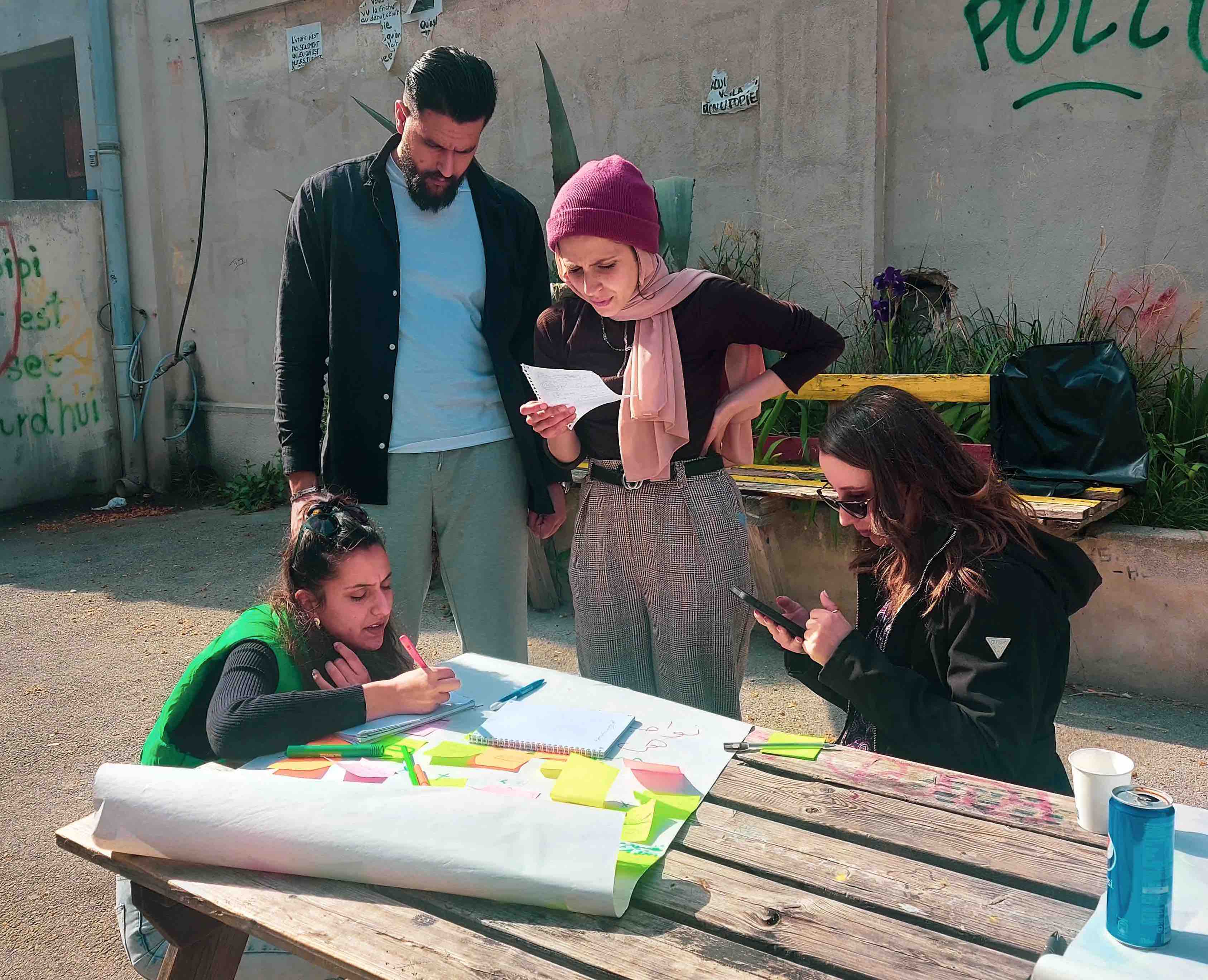
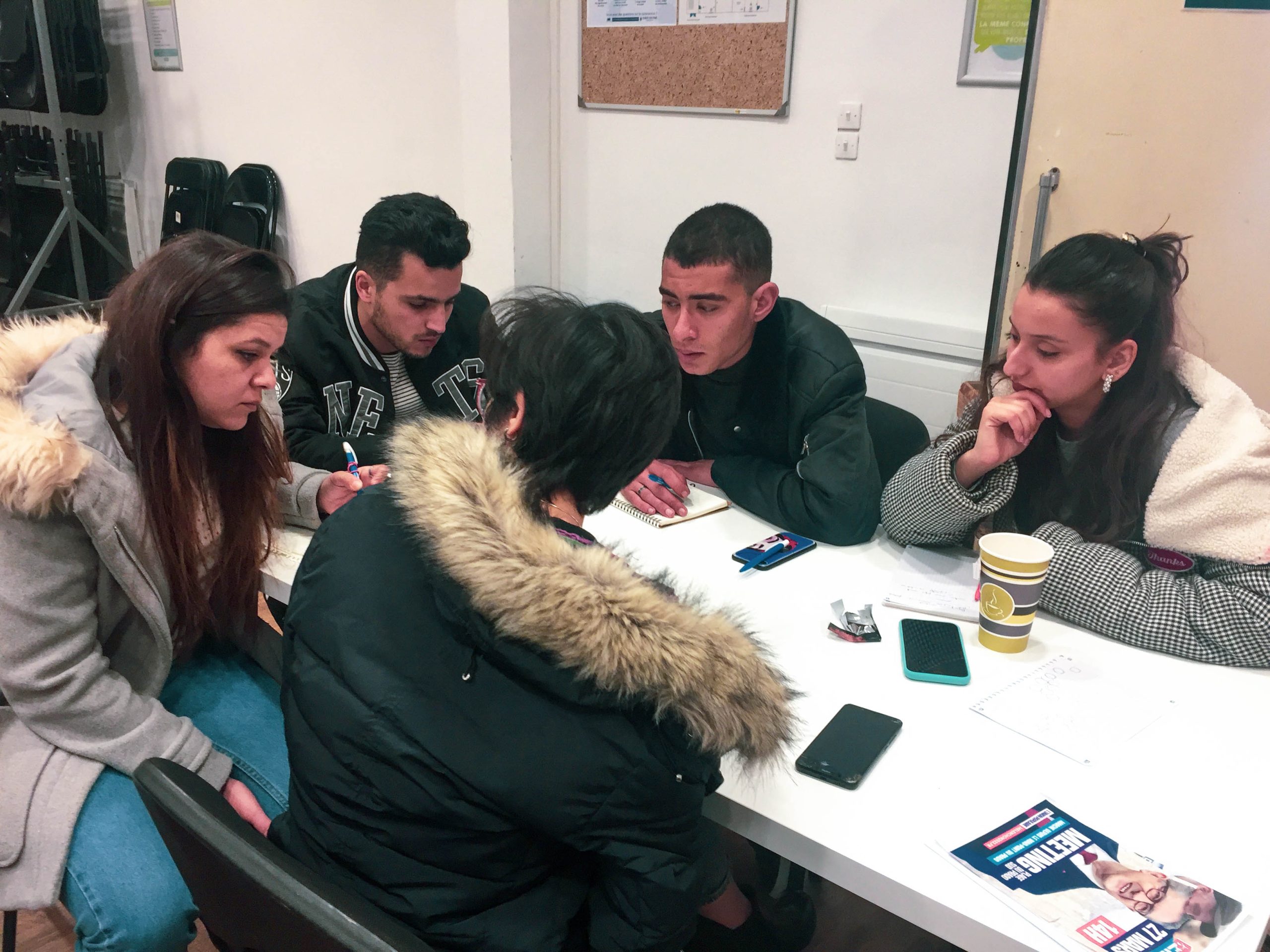
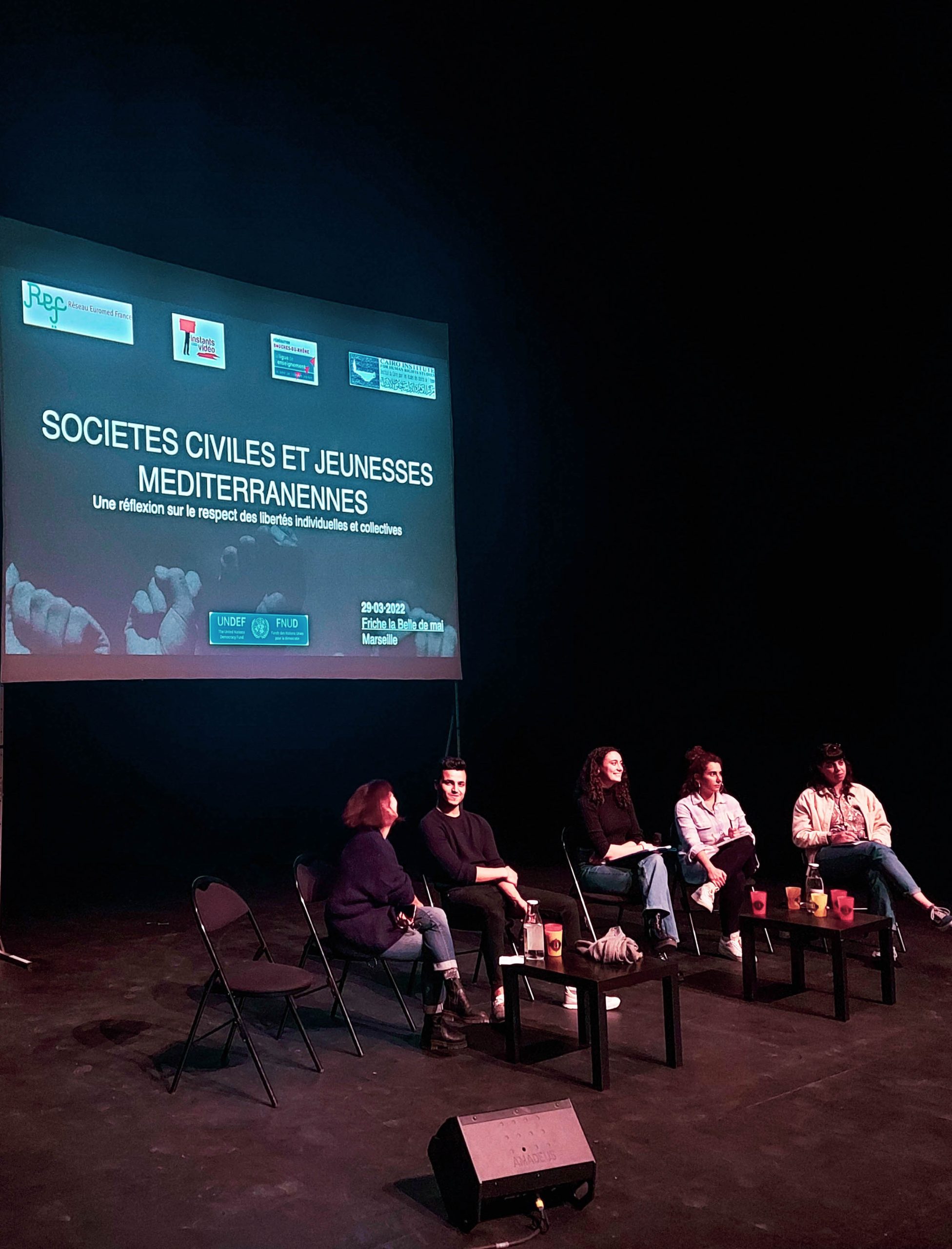
A glance
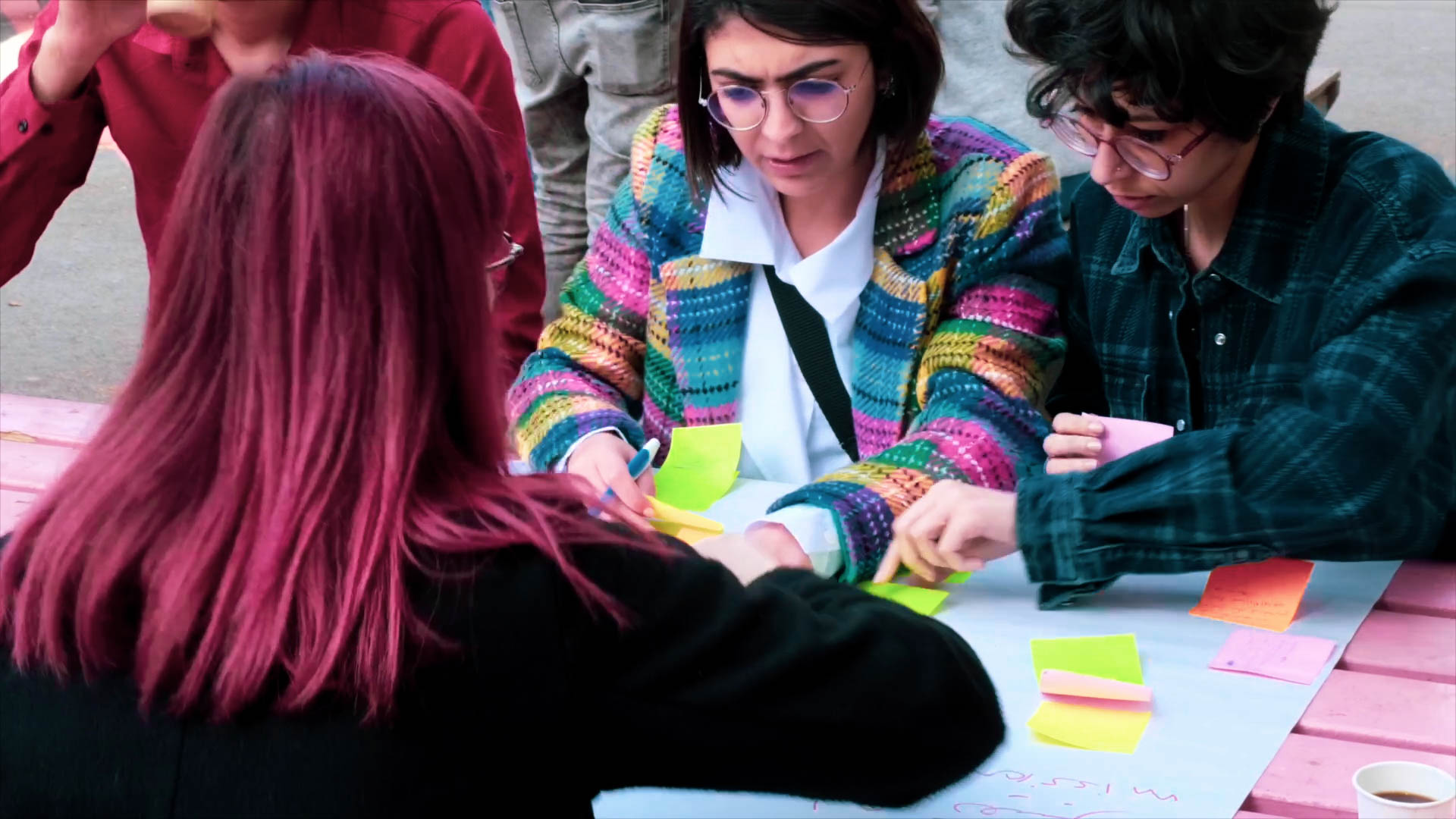
“Empowering a New Generation of Human Rights Defenders in the MENA region” (New Generation) is a project supervised by the Education and Dissemination of Human Rights Culture program of the Cairo Institute for Human Rights Studies (CIHRS) with the support of the United Nations Democracy Fund (UNDEF) and in partnership with the Réseau Euromed France (REF), and two of its members La Ligue de enseignement and Les Instants Vidéo, and technical support from the Human Rights Academy of Amnesty International.
The "New Generation" (empowerment) program aims to prepare a new generation of young human rights defenders and change-makers, who are individual activists or active members of civil society groups and organizations in the Middle East and North Africa (MENA) region. Participants were equipped with basic knowledge revolving around human rights and the work of civil society, and provided with the opportunity to exchange ideas with experienced activists working in civil society and democracy promotion. Operating through direct meetings and dialogues, and field visits to influential organizations and institutions, participants acquired additional practical skills to support their work and human rights activism. Women represented 56% of the participants, as ensured by the program’s criteria, and 31% of participants represented ethnic and racial minorities and marginalized or oppressed groups. Towards the end of the program, the goal was for participants to implement a variety of local human rights initiatives concerned with the protection of human rights, women’s rights, and the rights of minorities and marginalized groups, and resistance to discriminatory policies, violence, and hatred.
Over the course of 24 months, 44 participants from 11 different countries, in two parallel groups, embarked on a participatory self-learning journey, consisting of five gradual stages, during which the participants moved from basic theoretical knowledge and human rights frameworks to the planning and preparation stages for participatory human rights initiatives, followed by implementation stages and challenges, and evaluation processes to ensure sustainability and effectiveness. Participants received several specialized trainings and participated in three intensive workshops between the Tunisian capital and Marseille, in which they held 18 meetings with active members and experts in the human rights fields of advocacy, media campaigns, planning, and budgeting. Participants also visited organizations, cultural centers, and civic institutions that have impactful and effective participatory initiatives in addition to online training programs, many virtual meetings, and self-education programs.
On 10 December 2022, "New Generation" closing event in Tunis showcased sixteen local human rights initiatives from ten countries, representing the most important outputs of this training program. An array of issues were addressed by the initiatives, such as: defending the right to freedom of expression, freedom of art, independence of the media, the defense of women's rights and the rights of marginalized groups, and the protection of human rights defenders.
Concept
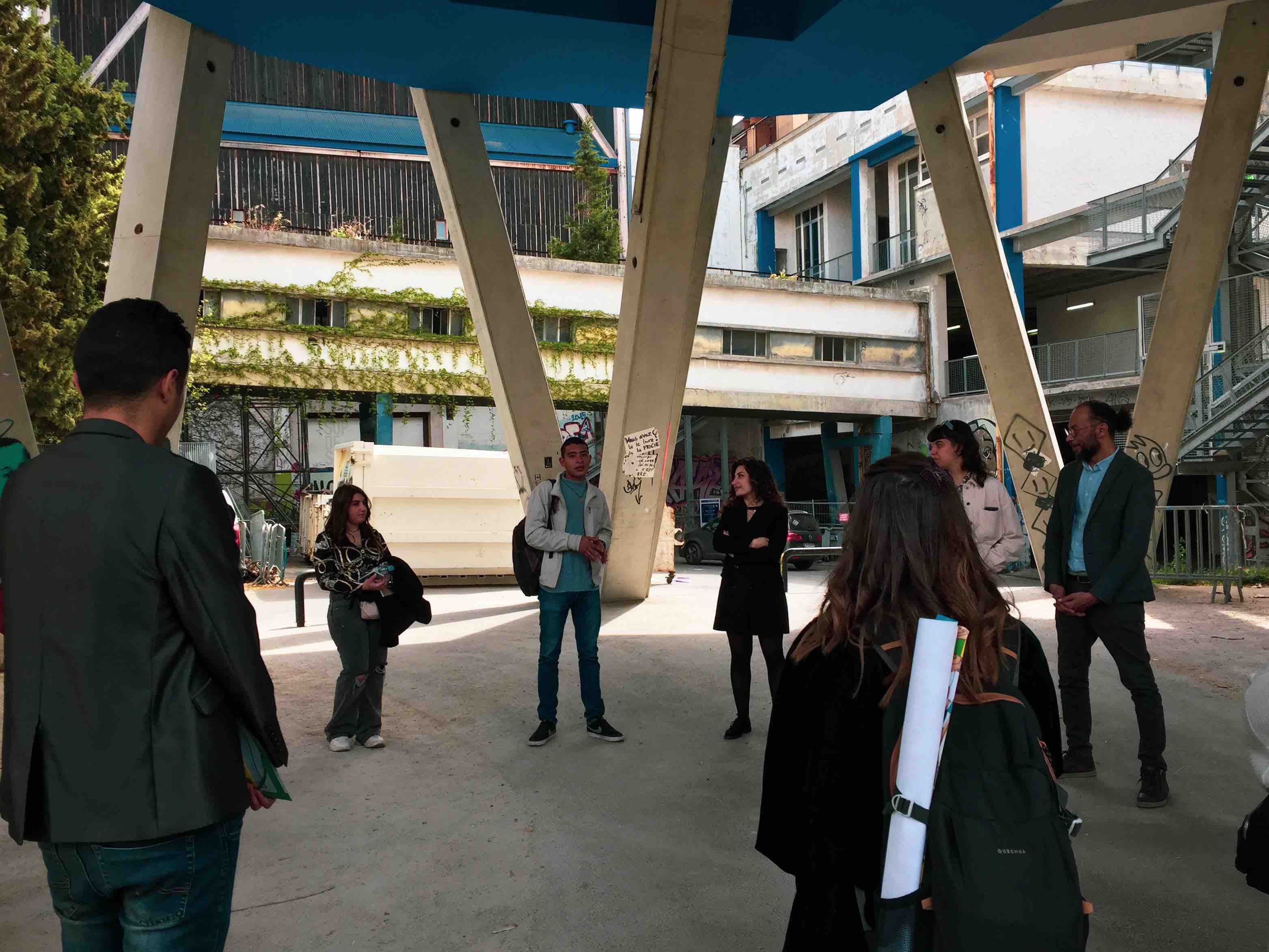
The "New Generation" program represents a 24-month learning journey, divided into five phases, allowing participants to gradually move from the stage of theoretical knowledge of human rights principles and standards and defense mechanisms to the acquisition and application of practical skills. Participants were equipped with direct and specialized practical and technical support in order to ensure a sound methodology for the launching of local human rights initiatives, starting from planning to implementation stage to follow-up and evaluation. The various program stages were implemented within the most comprehensive human rights frameworks, taking into account the data on the ground and the context-specific scientific study of human rights opportunities and challenges in each country.
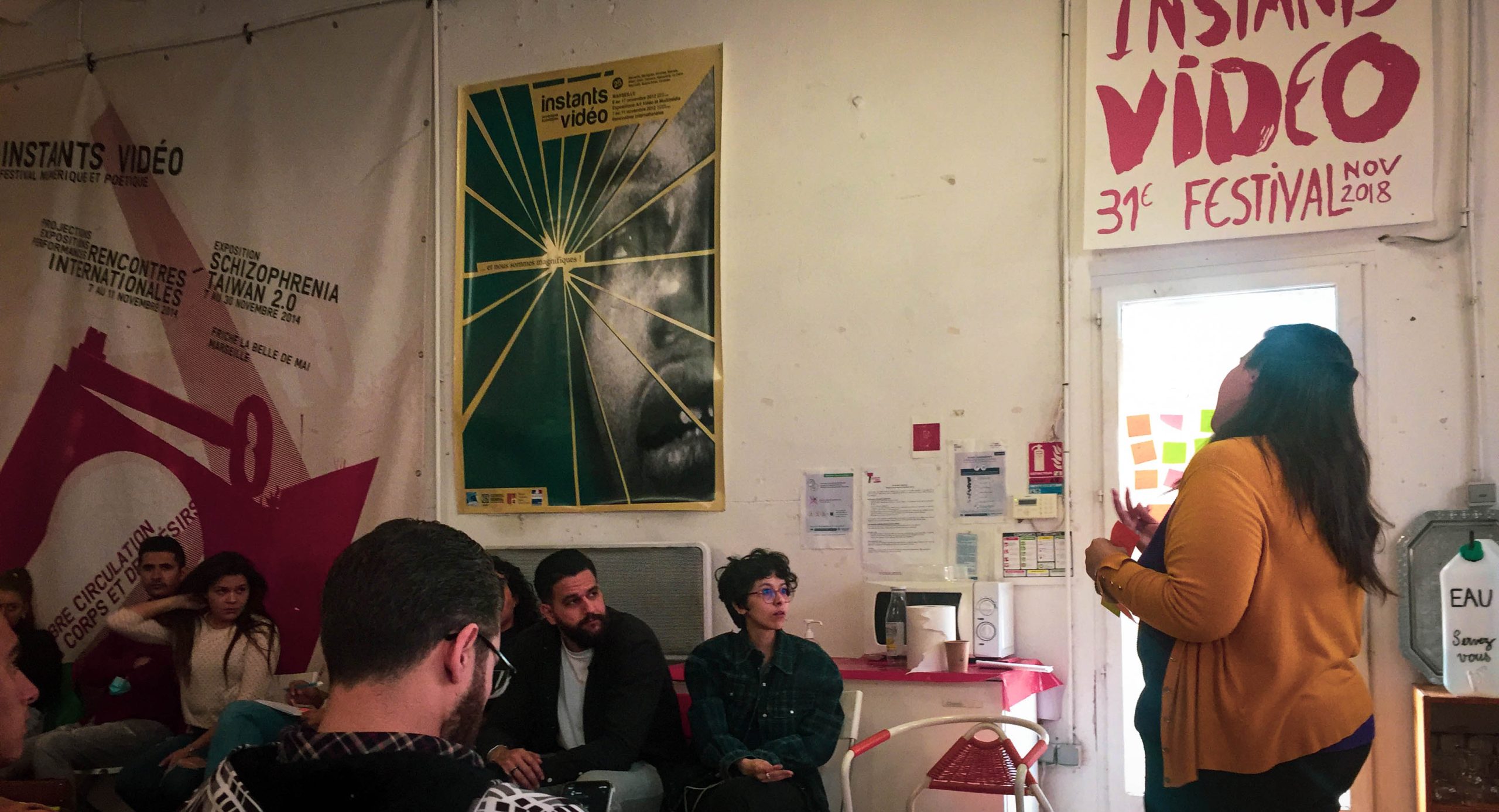 "New Generation" was designed to integrate theoretical training, interactive training, and the exchange of field experiences, and was based on a methodology that combines a self-learning approach and a participatory education approach. It relied mainly on learning by experience, practice, and application; space was also provided for exchanging experiences with active institutions and persons to ensure the flow and accumulation of knowledge on human rights issues. Organizers provided technical and material support to participants to ensure the sustainability and effectiveness of the graduates’ human rights initiatives, even after the end of the program’s term. This is a step in building the capacities of a new generation of human rights defenders and leaders of change in countries of the MENA region.
"New Generation" was designed to integrate theoretical training, interactive training, and the exchange of field experiences, and was based on a methodology that combines a self-learning approach and a participatory education approach. It relied mainly on learning by experience, practice, and application; space was also provided for exchanging experiences with active institutions and persons to ensure the flow and accumulation of knowledge on human rights issues. Organizers provided technical and material support to participants to ensure the sustainability and effectiveness of the graduates’ human rights initiatives, even after the end of the program’s term. This is a step in building the capacities of a new generation of human rights defenders and leaders of change in countries of the MENA region.
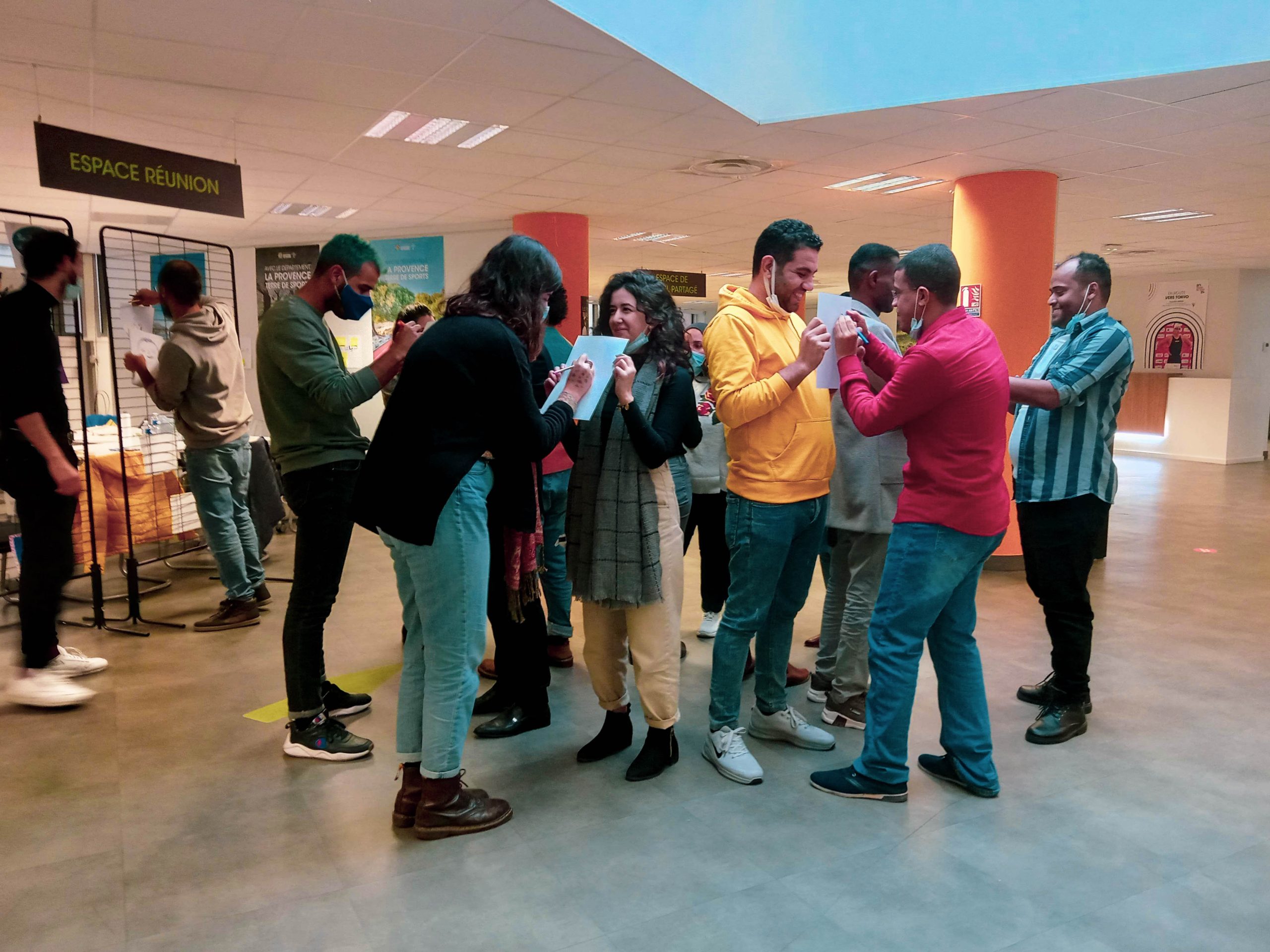
"New Generation" is considered one of the tools for enhancing the effectiveness of local advocacy on human rights issues, by preparing a generation of advocates who are concerned and familiar with the human rights challenges of their countries, and who are able to defend these rights on the basis of international human rights principles and international conventions and treaties, within a broader vision aimed at disseminating and teaching human rights culture.
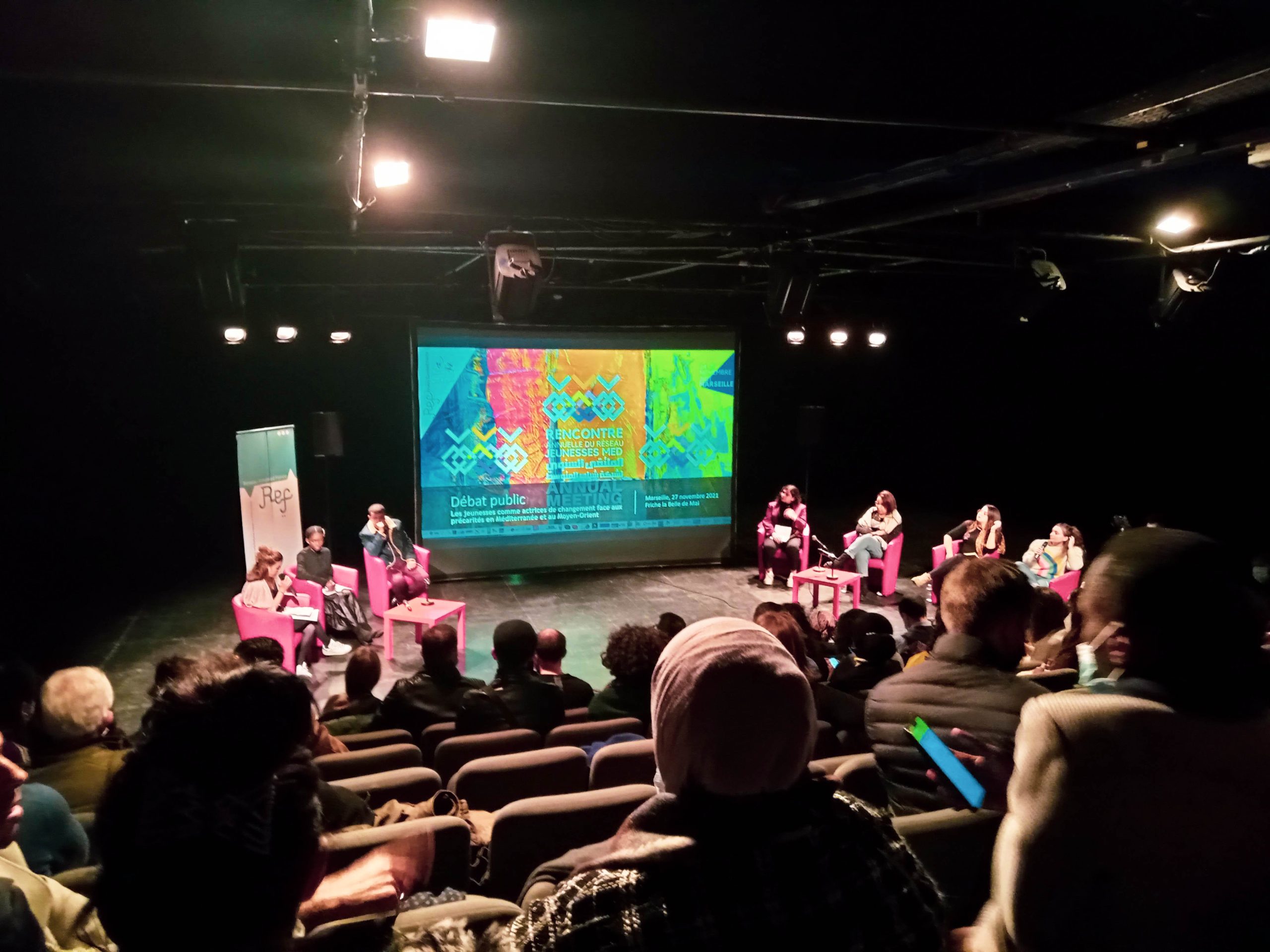
The Start
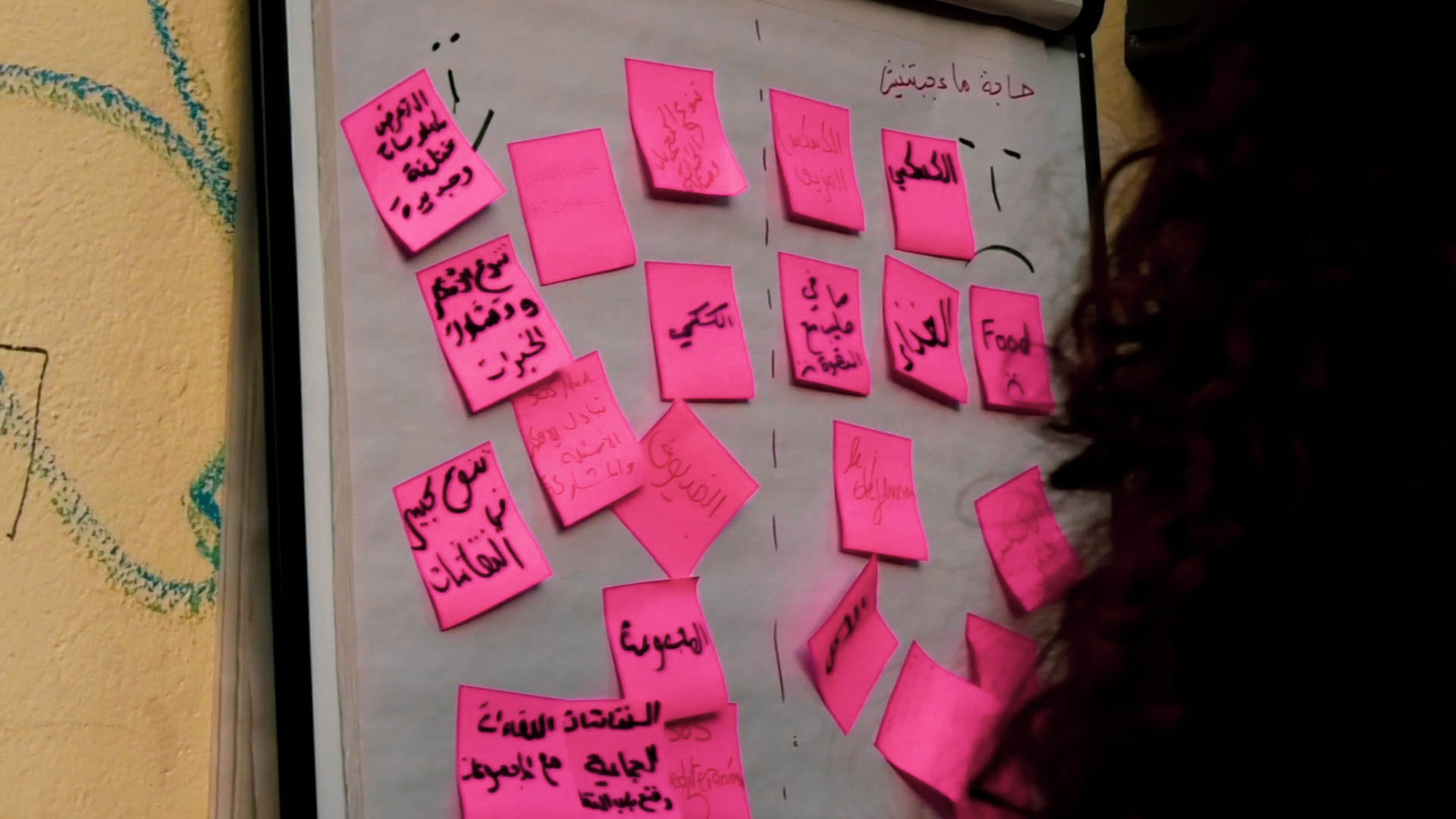
The "New Generation" program was launched in June 2020, and received over 1,000 requests to join after the online registration form was shared on various platforms. The selection process was subjected to specific criteria set by a specialized committee, which included diversity in nationalities, countries, areas of interest and work, level of experience and knowledge, and gender representation. The selection process reflects the willingness of participants to work on effective human rights initiatives in their countries as part of the outputs of the program.
Over 120 applicants were shortlisted, and 44 participants from 11 different countries were selected after conducting online and in-person interviews. Selected participants were divided into two groups that started in parallel the program stages in September 2020, provided that each group passed the first four stages of the program separately. The two groups gathered together in the fifth and final stage.
The COVID-19 pandemic coincided with the launch of the program, which posed many challenges related to implementation, especially in regard to the travel of participants to participate in training workshops or meetings with experts and specialists. Nevertheless, the program, which was launched late due to the pandemic, was able to harmonize between the challenges of the pandemic and the requirements of communication in its first three stages. Until COVID-related travel restrictions were lifted, the program relied on advanced technologies and online platforms to implement training programs in an interactive way, and organize virtual meetings with participants. In the fourth and fifth phases, participants were able to travel and meet face to face.
Stages
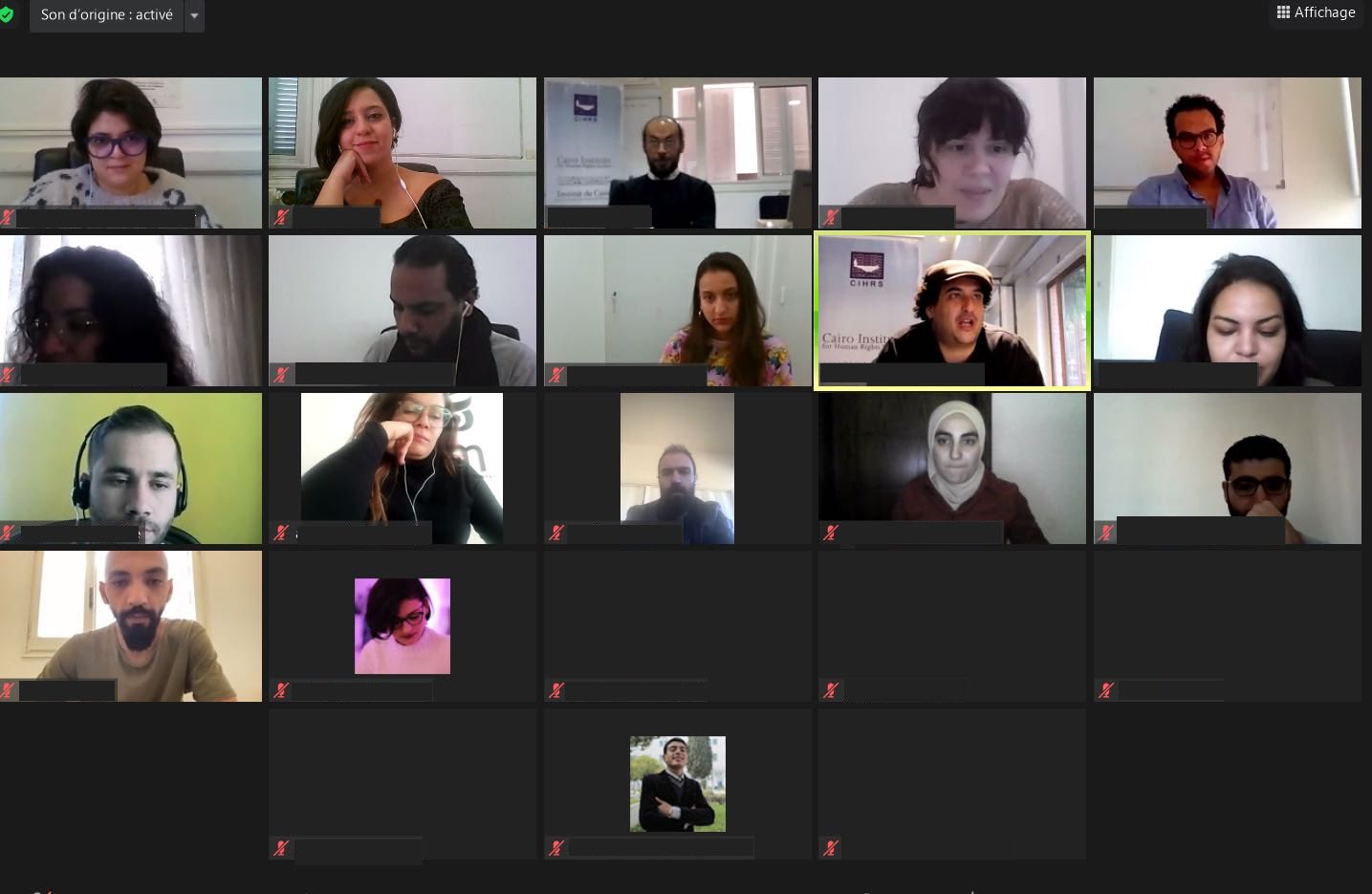
A self-learning journey that initiates participants with fundamental theoretical knowledge, then with analysis and planning tools, taking them to the implementation stage, and culminating with evaluation and follow-up.
Participants became acquainted with the most important basic knowledge related to human rights, and the international bodies active in human rights protection. This was followed by an introduction to the different types of human rights defenders and their specific roles, together with the study of social change and its various tools; on the basis of education on/for/and through human rights, using participatory methodology and experiential learning.
This stage included three online training programs (20 training hours), based on self-learning, in cooperation with the Amnesty International educational platform.

Participants were introduced to the meaning of participatory approaches or initiatives based on human rights principles and frameworks, and rights research, targeting diverse groups in society, and working within a clear value and behavioral human rights framework.
Participants began researching the topic of their approach or initiative in a 5-day workshop, following a training on how to conduct analysis and research from a human rights perspective and design their own vision for reaching the required change. Participants were detailed about the planning stages for the participatory initiative, from the initial stage of identifying the issue or topic and its target groups, to the stages of design and implementation, and culminating with the stages of evaluation and follow-up.
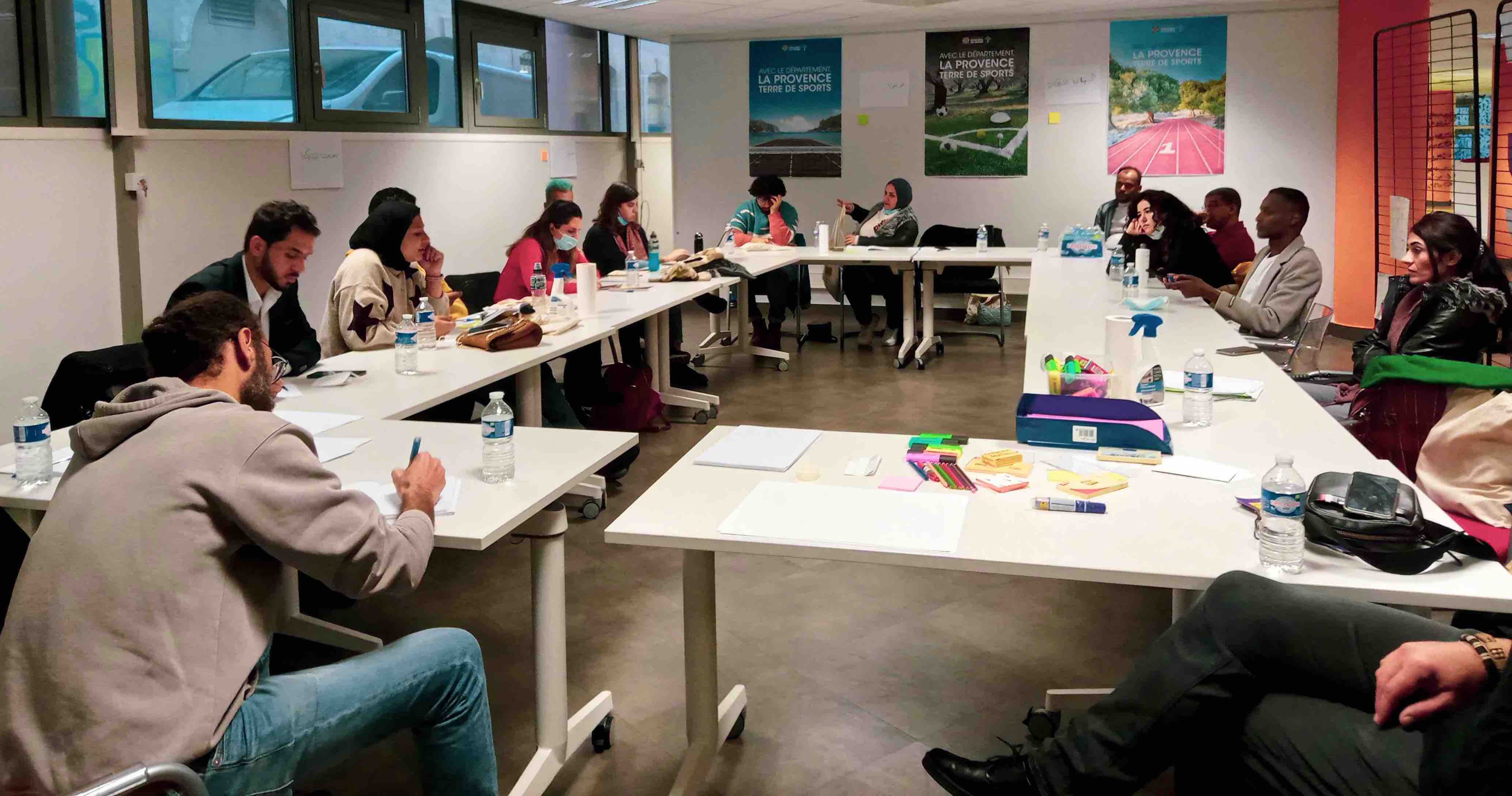
At this stage (the applied education stage), participants initiated practical application of the knowledge they acquired on managing participatory human rights initiatives. They prepared and presented data on the objectives of their initiative in their respective countries and the anticipated results. This encompasses contextual analysis of challenges and opportunities, the work team, and different stages of the action plan, according to a sequence of objectives for each stage, the budget and costs, the available resources, potential challenges, and the media plan for disseminating the initiative.
Completing the third stage is contingent upon the development of each initiative -whether individual or joint – as well as a coherent action plan ready for implementation at the national level. This plan should take into account the data and conditions of the changing context and the reality in each country, and includes a participatory approach based on alliances and networking with various stakeholders. This stage is implemented under the supervision of one mentor or framer responsible for each initiative, to participate in the discussions and analyses necessary to prepare the plan, and to facilitate follow-up, direction, and guidance during the implementation stages.
The working mechanism at this stage relied on 4 pre-prepared models to help participants in defining the basic concepts related to each initiative (the basic concepts model), the work plan, and its stages. This is according to a specific timeframe (the work plan template), an estimation of the budge and expenditures (the budget template), the media plan, and the timeline and platforms for dissemination (publishing template); all according to direct communication between the work team and the supervisor of each initiative. This stage included the organization of meetings between the work teams and experts in specific fields according to the needs of each group, including experts in advocacy, and media campaigns.
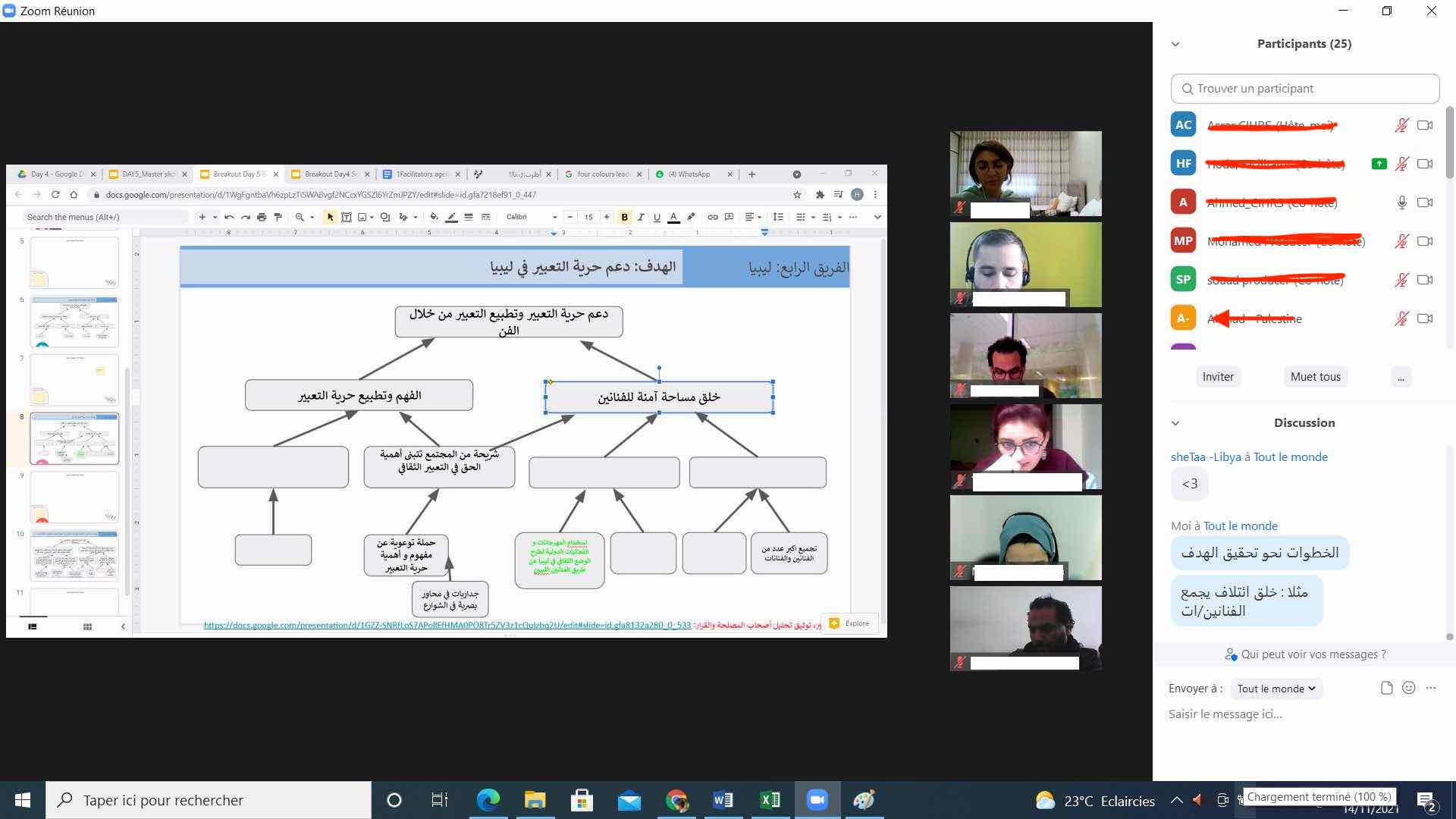
This stage depends mainly on direct interviews with different actors, and field visits to active civil society institutions around the Mediterranean Sea with the aim of exchanging experiences, cooperating on a practical level with work mechanism, and following up on the implementation stages of participatory initiatives in different fields. The program chose the French city of Marseille as the field for implementing this phase. This is due to its cultural diversity and pluralism in the fields of civil society and human rights work in Mediterranean countries, in a way that intersects with most of the topics or issues addressed by the participants' initiatives.
Thanks to the partnership with the Réseau Euromed France (REF) in France, an influential French network that includes 32 active human rights organizations, participants were able to communicate directly with other influential actors in French civil society in the city of Marseille, over a period of six consecutive days for each group. These actors are institutions and people who are interested in issues pertinent to countries around the Mediterranean and have inspiring human rights and political experiences and initiatives. They include: Théo Challande Névoret, Marseille's Deputy Mayor for Local Democracy and Anti-Discrimination Policies; Delphine Borione, French State Ambassador for Human Rights; Deputy Mayor of Marseille for local democracy and anti-discrimination policies; the human rights defender Imam Lovodik Mohamed Zuhd, and the Marseille Legal Team. This is in addition to visits to the headquarters of the French League for Human Rights, the Réseau Euromed France REF, Radio Galère, PRIMITIVI TV, Le Refuge, SOS Mediterranean, Women's Solidarity 13, Kleber Social Center, Organization Baham Arts, AIDES, and l'Après M social restaurant.
At the end of this stage, each group drafted a joint statement declaring themselves as a new group of young human rights defenders from different countries, who have adopted various initiatives and visions for ways to bring about change and protect rights. All of these initiatives and visions stem from common denominators represented in confronting repressive regimes, discriminatory and restrictive legislation, and harmful cultural legacies, and aim to spread and strengthen human rights culture.
In this final stage of the "New Generation" program, participants have already launched local initiatives in their respective countries and have begun to gather its initial reactions, and have achieved some of its interim goals. All participants from the two groups attended an expanded 3-day workshop and exchanged visions of their initiatives. These exchanges included practical experiences and information related to design flaws or implementation challenges- and ways to address and adapt to these challenges, and the impact of the results. This joint exchange meeting doubles the collective benefit and enhances the exchange of experiences between participants; revealing areas of similarity and difference between the country-specific contexts of human rights and civil society work in the region.
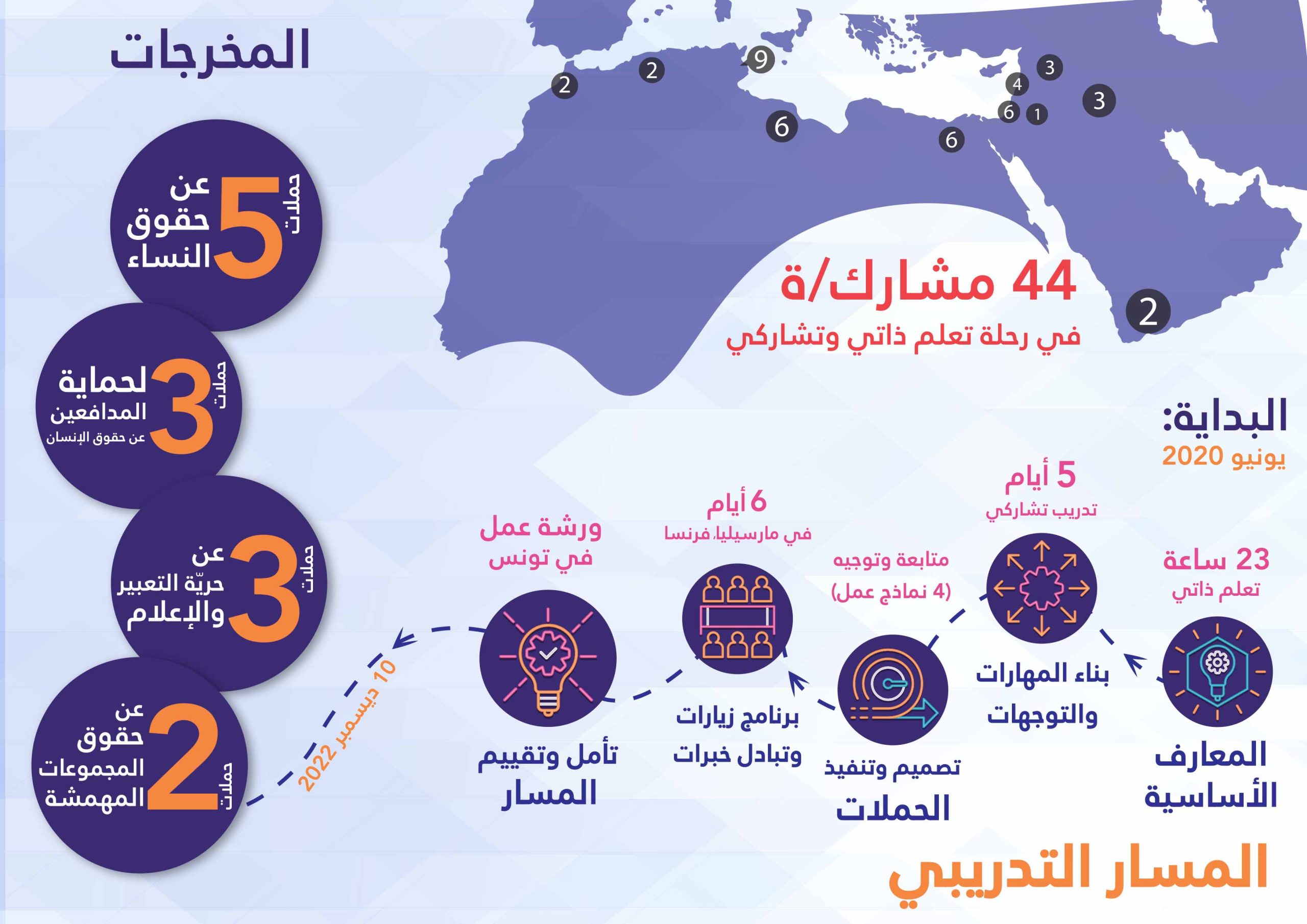
Hosted by the French Institute in Tunis, and in conjunction with International Human Rights Day on December 10, the program concluded its activities with the presence of participants from the two groups and a number of experts and actors in the field of human rights and civil society. In a joint meeting, they discussed ways and opportunities to double the effectiveness and ensure the sustainability of their initiative after the end of the program. This enhances the participants' ability to transform these simple initiatives into extended and impactful projects that advance a new generation of human rights defenders.
Closing Ceremony
On December 10, 2022, the Cairo Institute for Human Rights Studies (CIHRS) concluded the program’s activities with a special event hosted by the French Institute in Tunis. The event was attended by the program’s partner organizations and featured a valuable contribution from Tunisian human rights advocate Bochra Belhaj Hmida, along with a large presence of individuals and organizations interested in human rights in Tunisia, including journalists, the program team, and participants. This joint meeting provided an opportunity for participants to discuss ways to enhance the impact and ensure the sustainability of their initiatives after the training program, thereby increasing their ability to transform simple initiatives into extended and influential projects that foster a new generation of human rights defenders in the Middle East and North Africa.
The director of the French Cultural Institute, Lionel Briand, welcomed all attendees, highlighting the importance of such training programs in shedding light on human rights and equality issues in Mediterranean countries and showcasing the commitment of young people and new generations from civil society to protecting and defending human rights. In her speech, Marion Isvy, Executive Director of the Euro-Mediterranean Network, stressed the importance of solidarity, cooperation, and knowledge exchange among human rights defenders in the region. She affirmed that the end of this training program marks the beginning of many new human rights campaigns and initiatives across the participants’ countries.
Tunisian human rights advocate Bochra Belhaj Hmida focused in her remarks on the unprecedented deterioration of human rights in the region, and the increasing restrictions imposed on defenders, including the confiscation of their basic rights such as freedom of movement. She also highlighted the campaigns of repression, defamation, incitement, insults, and accusations of treason targeting civil society and its symbols. Belhaj added: “Only new generations of defenders can pierce through this darkness, renewing hope in the continuation of the journey to defend and uphold the rights of the people.” She concluded: “Your presence, your campaigns, and your work strengthen our resilience and renew our hope in achieving freedoms and rights.”

As part of the event's program, a discussion was launched between attendees, program members, and participants, which was divided into two parts. The first focused on the restrictions imposed on women’s rights and the rights of the LGBTQI+ community across the region, including legislative restrictions, discriminatory practices, prevailing patriarchal culture and social constraints, as well as various forms of violence, including digital violence. This segment featured valuable contributions and presentations from human rights defenders from Lebanon, Palestine, Tunisia, and Libya.
The second part of the discussion focused on the recurring patterns of repression targeting traditional and digital freedom of expression and press freedom in various countries. These are not limited to blocking websites or shutting down newspapers, but extend to tracking journalists and content creators with threats, imprisonment, torture, and enforced disappearance. In most countries, citizens are being punished merely for expressing their opinions on social media platforms, based on loosely defined laws such as cybercrime and anti-terrorism legislation. Participants recognized the striking similarities between these repressive practices after listening to inputs from Egypt, Palestine, Iraq, Morocco, Tunisia, and Libya, painting a broader picture of the deteriorating human rights situation across the Arab region as a whole.

Program results
The initiatives covered an array of topics, including women's rights; the rights of minorities and marginalized groups; freedom of opinion, expression and art; media freedom; and the protection of human rights defenders.
Participants launched 16 ideas for individual and joint human rights initiatives that dealt with various human rights issues in their countries. The "New Generation" program team provided technical support and guidance to the initiatives being implemented at its various stages, especially in light of the problems and challenges posed by local environments. In addition, 10 of their initiatives received financial support from the program.
The topics of the initiatives included women's rights, the rights of minorities and marginalized groups, freedom of opinion, expression and art, freedom of the media, and the protection of human rights defenders. Its geographical contexts also varied; encompassing the countries of Tunisia, Libya, Egypt, Lebanon, Syria, Palestine, Jordan, Yemen, Morocco, Algeria, and Iraq.
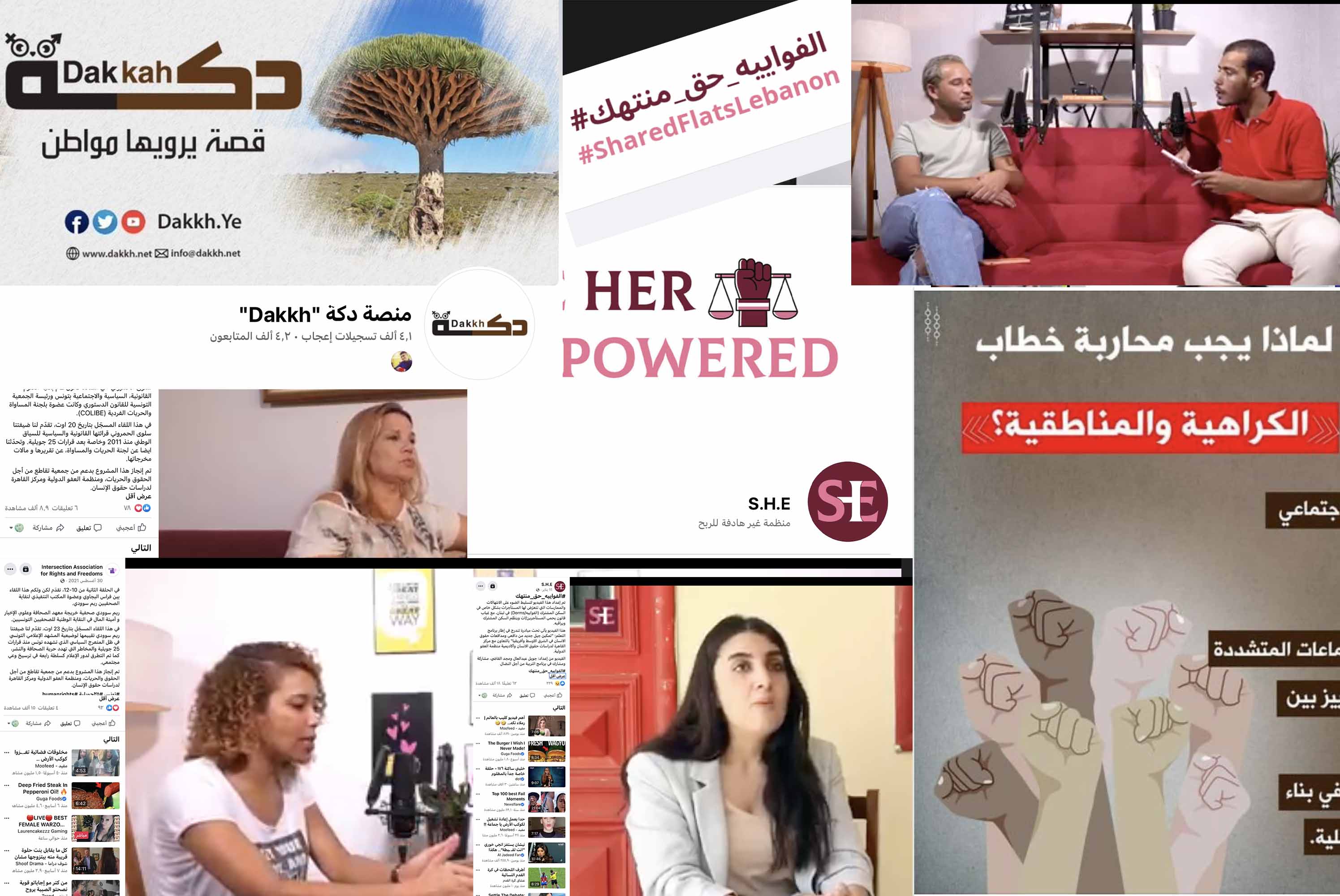
Yemen
Dakkh
No to Hate Speech in MediaThe platform is keen to host consultative meetings and workshops that bring together journalists, media professionals, civil society organizations, content creators and influencers. The meetings and workshops focus on discussing and formulating a code of conduct that guarantees professional media performance and rejects violence and incitement in the national media.
- Website: https://dakkh.net/
- The campaign platform on Facebook, publishing various content (written, visual and audio) produced by the campaign.
Iraq
Defenders without Protection
Protect Human Rights DefendersThe campaign focuses on creating spaces for discussing the legislative regulations required to guarantee these rights among advocates, journalists, representatives of civil society, jurists, legislators, parliamentarians, politicians and religious clerics. The campaign puts forward alternative legislation or consensual basic guarantees that should be included in the laws regulating these rights. The campaign also seeks more popular support for these guarantees and demands through media and online campaigns to push the plan for change and legislative reform.
- Three consultative meetings involving prominent human rights defenders and advocates in three different Iraqi cities (Baghdad, Basra, Nineveh), to discuss the basic legal guarantees to guarantee the right to freedom of association, expression and peaceful assembly.
- A joint petition open for discussion and signature that includes basic human rights guarantees for any legislative reform plan.
- Discussion sessions on the current laws with specialists from the legal, political and civil society, to present specific recommendations for amendment or alternative proposals of current laws, to ensure the guarantee of rights and the protection of their defenders, in preparation for submitting them to the House of Representatives.
- A media and online campaign to reinforce the demand for legislative reform and adopts human rights demands in the required amendments.
Tunisia
Program 10-12
Forgotten human rights issuesThe campaign relies mainly on video-clips, by recording interviews with a variety of specialists from different sectors, affiliations, and institutions, to raise and discuss human rights and other controversial issues, focused on addressing issues of discrimination and stigmatization based on gender or sexual orientation.
Other human rights platforms will publish the videotaped interviews with the guests in a series on social media, to enhance its reach among the Tunisian public.
- A video interview with Salwa Hamrouni, a professor of public law at the Faculty of Legal, Political and Social Sciences in Tunis, in which she presents her legal and political reading of the current situation and the report of the Freedom and Equality Committee,
- A video interview with a member of the Journalists Syndicate Executive Office, Rim Saoudi, assessing the Tunisian media scope and the threats to freedom of the press and publishing.
- A video interview with journalist and queer activist Saif Ghrairi Thairi, and their evaluation of the course of queer activism in Tunisia and what the LGBTQ+ community is facing, and upcoming prospects.
Morocco
For their safety
To Protect Our Right to ExpressionThe campaign seeks to raise the awareness of Moroccan youth about the nature of the restrictions imposed on digital freedoms and freedom of expression, and about the most important national and international legal guarantees to protect these rights and ways to defend and develop them to provide more protection.
- Solidarity activities with victims of violations of the right to freedom of expression, and introducing them.
- Coordinating with groups of influencers on social media and prominent media professionals to adopt rhetoric supporting freedom of expression and highlighting violations against it at the national level.
- Hosting small workshops on digital protection techniques and ensuring privacy for those concerned.
Libya
Archida
To Confront Harassment in the WorkplaceThe campaign consists of recorded podcast interviews with human rights and feminist activists, business owners, officials, and specialized professors to discuss the phenomenon and its repercussions from the various social, psychological and legal aspects. The campaign aims to introduce the available reporting and protection mechanisms and sources of support for working women victims. Guests also strive to present approved proactive controls or plans set by employers to combat harassment and violence against women in the workplace.
- Four recorded podcast interviews with four feminist activists about their personal experiences in different work environments, and the complaints or testimonies they receive about harassment of women in the workplace.
Lebanon
Heya
Adequate Shared Housing Respecting PrivacyThe campaign presents filmed and recorded real experiences of the suffering of female tenants who have faced severe violations in the shared housing. Their experiences reflect the exploitation of the landlords, and their blatant disregard for the humanity of these female students or employees and their most basic rights to a clean, healthy, or even humane housing.
The campaign aims to draft and impose a list of the minimum conditions required in shared housing, and issue legislation that protects female tenants in shared housing, and obliges project owners and investors who own shared housing units to take into account humane standards of housing.
- Filmed scenes of some of the deteriorating conditions in women's shared housing in Lebanon
- Recorded and photocopied testimonies of the inmates of some of these residences and descriptions of their suffering.
- A Facebook page to raise awareness of the right to adequate housing and the conditions required in shared housing
Lebanon
Let’s Talk
On the Sexual and Reproductive Health of Migrant WorkersThe campaign focuses on the repercussions of the economic crisis in Lebanon on the availability and prices of healthcare supplies for women, especially menstrual pads, compared to similar commodities for men such as subsidized razors included in the government support plan, amid the deteriorating conditions of female economic workers and their social suffering.
- Three workshops with migrant workers and domestic workers on sexual health and its impact on women's health. Introducing sustainable alternatives to expensive feminine goods such as reusable menstrual cups or sanitary pads.
- Preparing a presentation and illustrations to explain the functioning of the female reproductive system, and the menstrual cycle, tracking ovulation, methods of contraception, and personal hygiene products for women.
Algeria
Balagi
To Confront Domestic Violence Against WomenThe campaign seeks to raise clear recommendations through networking between civil society organizations and human rights and women's organizations, on how to interact with women suffering from abuse, provide them with psychological and health support, and guarantee their right to safe shelters ready to receive them.
The campaign aims to pressure for more legal and societal protection for women suffering from domestic violence, and rapid intervention to save them.
- Consultative meetings with relevant women's and human rights groups and organizations, to discuss ways of cooperation and mechanisms of joint pressure.
- Preparing a list of joint recommendations to submit to the Ministry of Solidarity regarding the means of protection for battered women.
- Submitting proposals for modern and fast mechanisms to help facilitate the process of receiving reports of abuse and ensure the security of the victims.
- An online campaign featuring numbers and facts reflecting the extent of domestic violence against women and encourages victims to report the perpetrators.
Libya
Ta’aber
Freedom of artA specialized online platform for displaying works of art and spreading human rights culture through the use of art.
Jordan - Palestine
Messaha
To Defend the Rights of Marginalized GroupsThe campaign also seeks to build the capacities of young human rights activists in this regard, to shed more light on these issues and forgotten marginalized groups.
Research and training activities and tools such as workshops, questionnaires, impact measurement tools and opinion polls.
Syria – Lebanon
Health is my right
The Rights of Female Breadwinners in HealthcareThe campaign is concerned with refugee women who have no other breadwinners in Lebanon, and/or have lost identification papers, which often deprives them of limited, and expensive healthcare services.
Tunisia
Violations and decrees
The Deterioration of Rights and Freedoms Under the Rule of Kais SaiedThe campaign focuses on decrees and orders issued by the President of the Republic, Kais Saied, which included explicit infringement of rights and freedoms, legitimizing the confiscation of the right to expression and the right to peaceful assembly, and allowing the trial of civilians before military courts. The campaign aims to present a unified plan of action from the organizations to confront these decisions and decrees.
- A coordination meeting consisting of national and international legal and human rights experts, and the media, to review the most important areas of infringement of freedoms in Tunisia, related to the decrees and orders issued after July 25.
- A research study (policies paper) to confront the expansion of military trials for civilians, based on facts and testimonies, and concludes with specific legal recommendations and amendments.
- Launching a network of associations to document violations and propose a national and international advocacy plan to reduce violations and review laws depriving freedoms.





